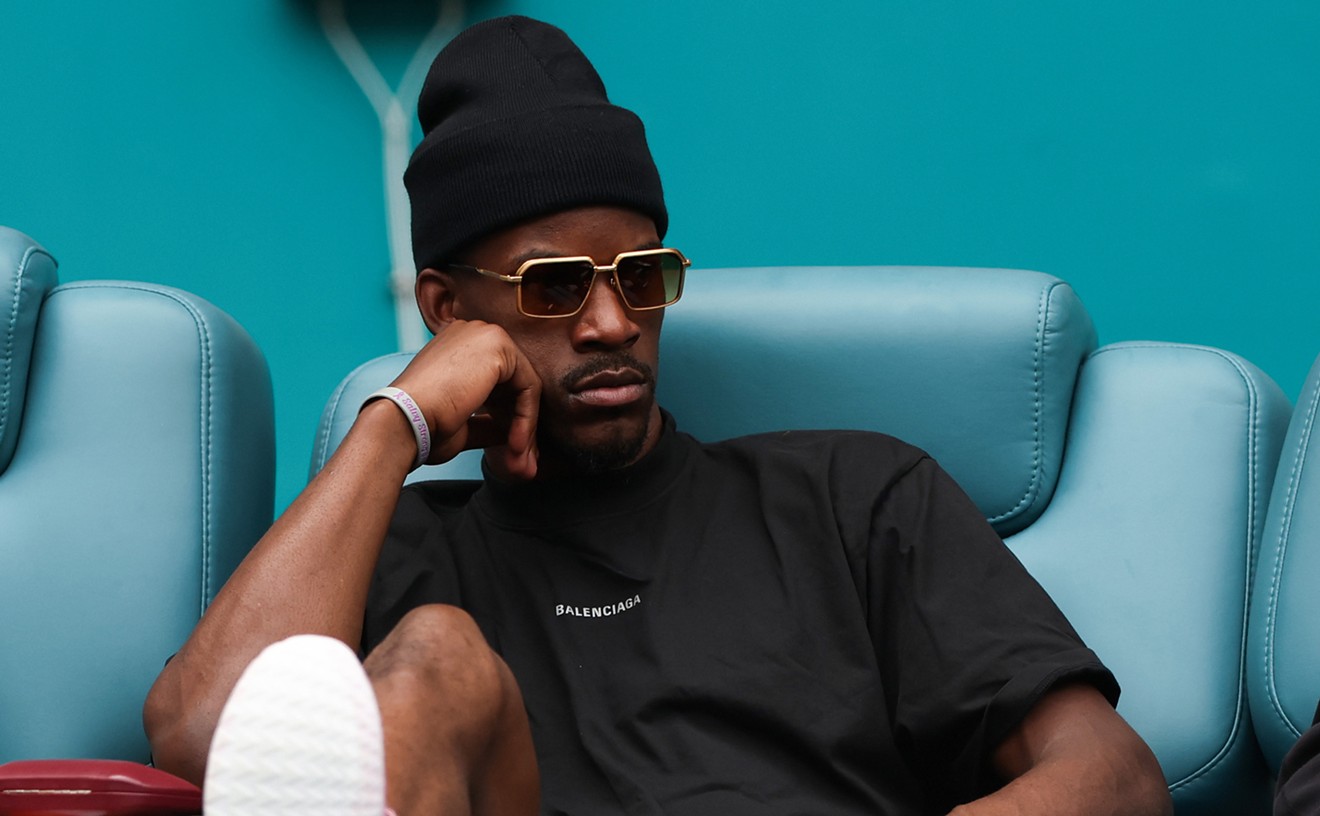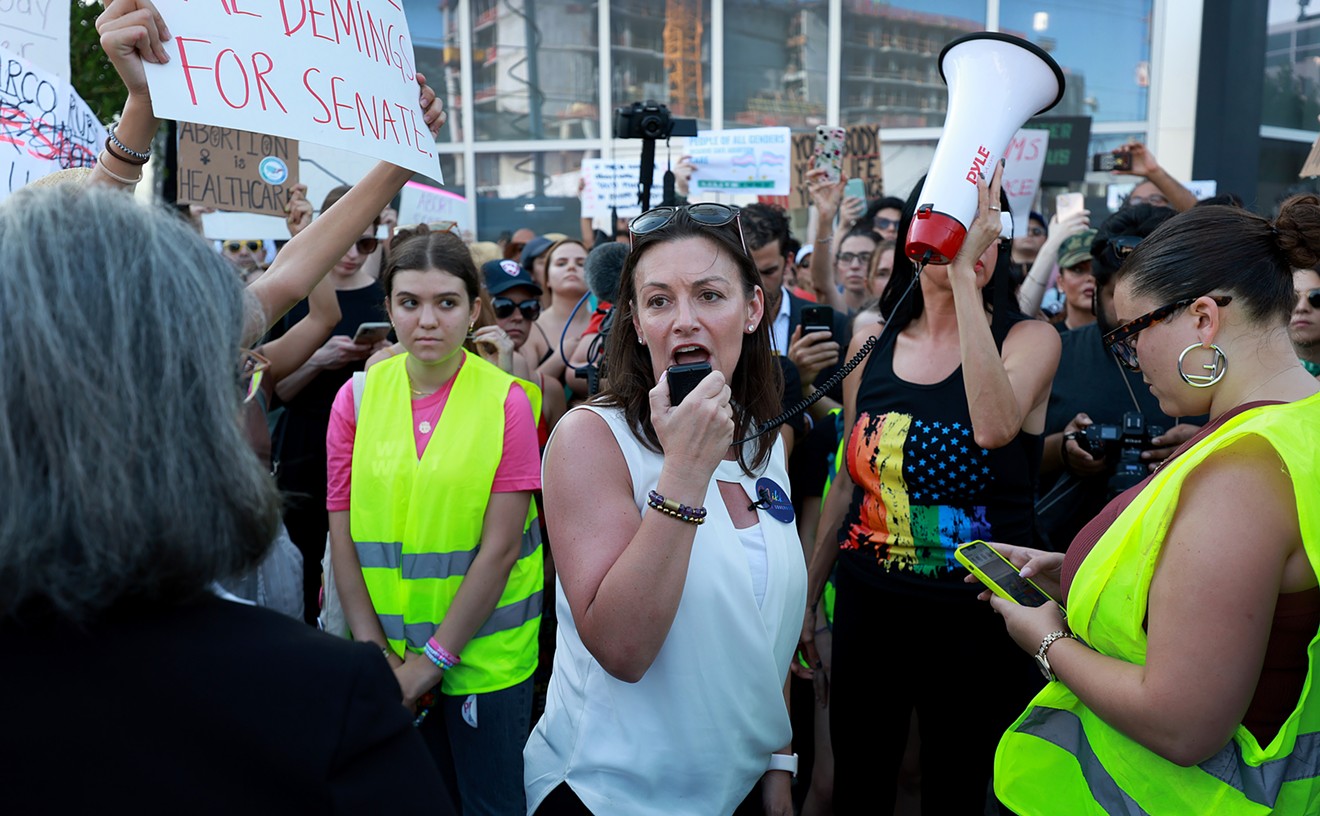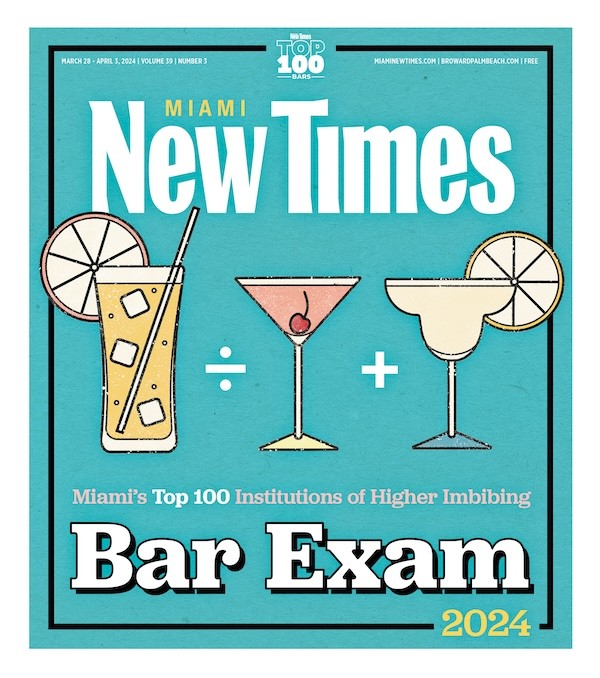The official seal of Indian Creek Village depicts a closed front gate. That's all the chic North Miami-Dade island's 33 multimillionaire residents want you to know. You're not welcome.
So it was illuminating to attend a rare gathering last Tuesday of some residents, who include auto mogul Norman Braman, financier Carl Icahn, and former Dolphins coach Don Shula. The event: a village council meeting about a proposed new levy for the town country club.
There was the stately Mary Anne Shula, Don's wife, earnestly pleading poverty. "My husband is 80 years old... He's on the back nine of his life. Don is unable to do talks and signings like he used to. If our taxes go up, he'll suffer... What gives you the right to do this?"
What was the financial hit to the Shulas, who live in a $4.14 million, 13,300-square-foot, white-columned mansion? $3,427.
"Maybe they have serious financial trouble," village attorney Stephen Helfman says. "I was frankly surprised that she was objecting."
Later in the meeting, Miami's recently ousted police chief, John Timoney, testified as an expert. Then former U.S. Sen. George Smathers's widow, Carolyn, tearfully pleaded for the long-battling country club and village council to "learn to get along." But in the end, the council approved the new tax anyway.
Don Shula's caddy-tip fund is just one unintended casualty of the shank-to-the-side of the notoriously exclusive Indian Creek Country Club. The vote will increase the amount that club members pay toward Indian Creek's ten-officer police force by nearly 30 times, from $29,819 to $842,315 annually.
The club's racist past has made it toxic. To this day, it has permitted only a handful of Jews and blacks into its ranks. As a result of the restrictive policies, it's been boycotted by the Orange Bowl Committee and former Gov. Jeb Bush.
The village, meanwhile, has been home to tough Jewish Americans such as car magnate Braman, financier Icahn, and hip-hop producer Scott Storch. Four of the five council members are Jewish.
Last Tuesday's decision was sweet payback for some villagers. But it's not over. The decision will likely be challenged in court. The "absurd" assessment will "only result in high legal fees and the real possibility of judgments borne by the village residents," club spokesperson Bruce Rubin says. He also insists that its discriminatory reputation "isn't true. The club in no way has any of those archaic policies."
Indian Creek Village was founded on the lofty ideal that rich people need not share streets with the huddled masses. In 1939, the 660-acre man-made island just south of the 123rd Street Causeway — winter haven to FBI chief J. Edgar Hoover and the Woolworth family — incorporated to evade annexation by Surfside.
From the beginning, the village and the club, a Mediterranean-style golfer's paradise built in 1930, were uneasily conjoined. The club never rushed to accept villagers into its ranks. The rift grew deeper as the village grew more Jewish and the country club's membership policies became more outdated.
For 25 years, the Orange Bowl Committee held its annual soiree at the Indian Creek club, which then allowed Jews and blacks on its grounds only as party guests. In 1986, the bowl committee buckled to pressure from county officials and found less toxic gala grounds.
In 1999, then-Indian Creek Village Mayor Leonard Miller, who was Jewish, refused to meet Bill Clinton after the president golfed at the controversial club. "It's embarrassing to live here and have to explain why I'm not a member of the club," Miller told the Miami Herald. A year later, Governor Bush didn't make the same public relations mistake: After speaking with Miller, he cancelled plans to tee off.
To join the club, candidates must be recommended by at least one current member and approved by 75 percent of the 15-man board of directors. The initiation charge is $125,000, plus $10,000 in annual dues. Though rolls are carefully guarded, New Times has learned its members include former Ambassador to Belgium Paul Cejas, tennis Hall of Famer Butch Buchholz, crooner Julio Iglesias, farming magnate and philanthropist Paul J. DiMare, auto dealer Gus Machado, and University of Miami Board of Trustees chairman Dr. Philip George. Village attorney Helfman estimates "eight or nine" residents are also members of the club, including Cejas and Icahn, one of the few Jews who have penetrated its ranks.
For decades, Helfman says, club members dominated the village council and made its rules. Like everybody else, residents paid village property taxes based on their home values. (Last year, for instance, totals ranged from $9,219 for the island's least valuable house, worth $1.7 million, to the $85,705 paid by Cejas for his 18,000-square-foot manse. The country club, with its property valued at $5.6 million, paid just less than $30,000 to the village annually.)
But by 2008, the village council was full of non-club members. At least two of the current councilmen, bank executive Javier Holtz and physician Scott Segal, applied for membership to the club but were denied.
With consultants' help, the council crafted a plan to exponentially increase the club's tax. To do it under Florida law, they had to reclassify the Indian Creek Village Police force as a "security service." Residents would save as much as $60,000 less in property taxes a year. Only four, including the Shulas, would have to pay a few thousand more.
At the jammed May 20 meeting about the tax, high-priced club lawyers lobbied indignantly as commissioners yawned and stared at the ceiling. Lead club attorney Bill Spencer declared, "This is the first time that something like this has ever been attempted by any government."
Among the three experts who spoke in the club's defense was Timoney, who appeared in a John Gotti-esque gray pinstriped suit and argued that Indian Creek cops are far more than butlers with badges. "Make no mistake about it, this is a full-fledged police department," he asserted, describing how in a recent ride-along, the island officers had found a golf shack unlocked: "That's traditional police work."
But club representatives were overruled by villagers, including Braman, who said the assessment was "about fairness."
"It may well be that we have to be at the Supreme Court," Councilman Holtz said as the ordinance was approved, "but the residents have spoken."
Carolyn Smathers sobbed at the result: "The island and the club are like a married couple who no longer love each other. But it's too expensive to get a divorce."










